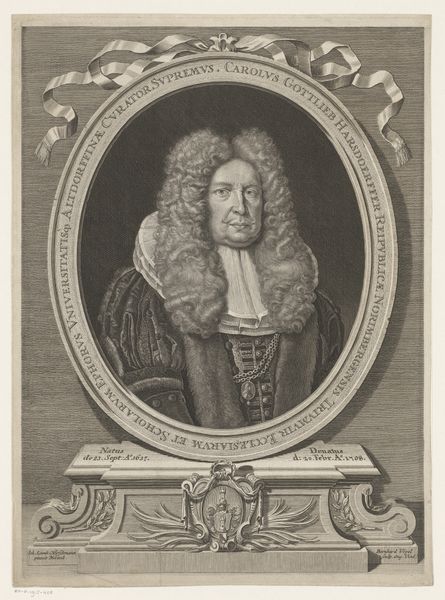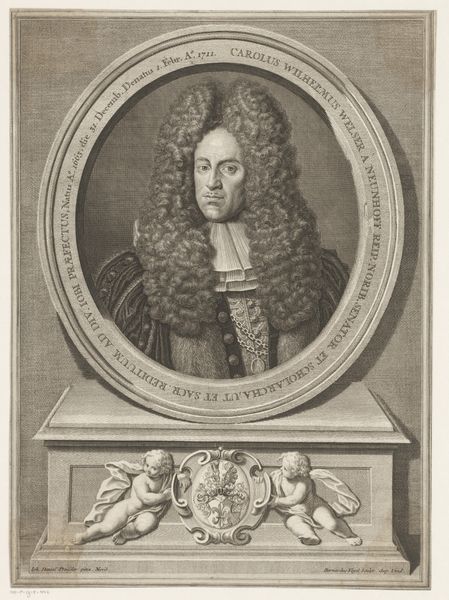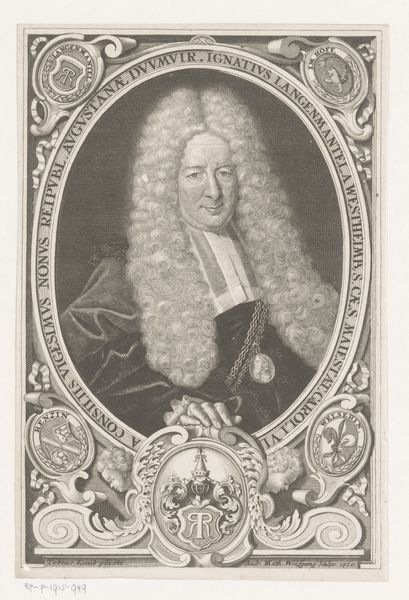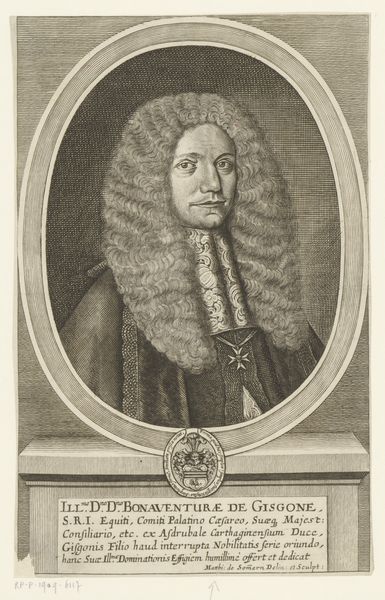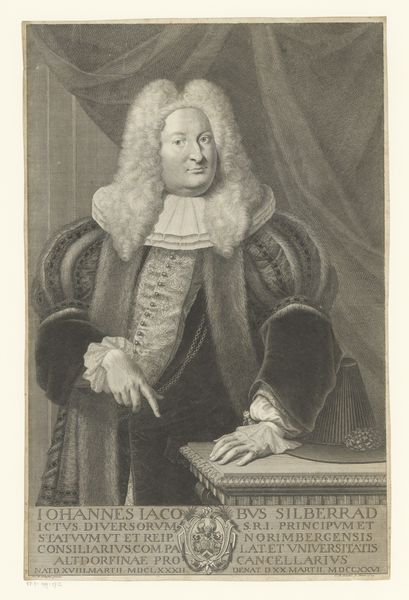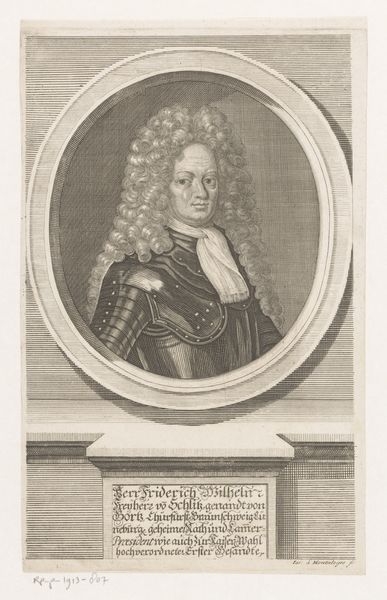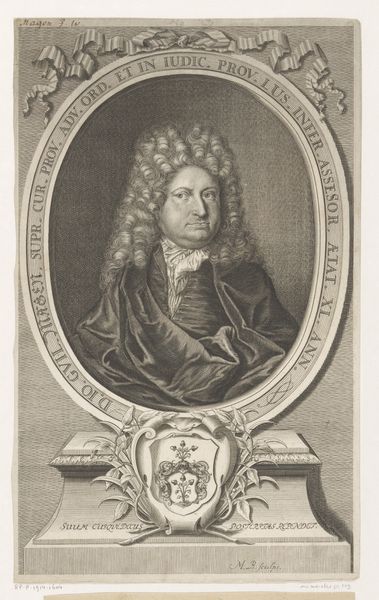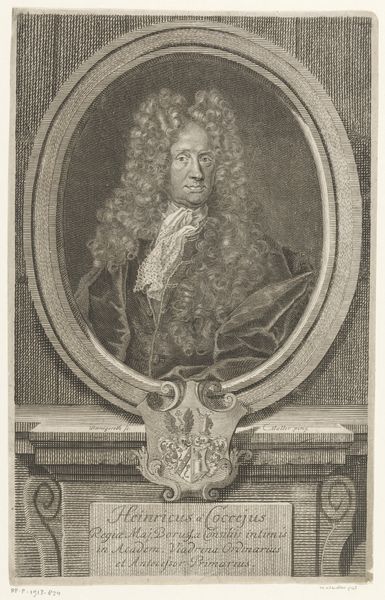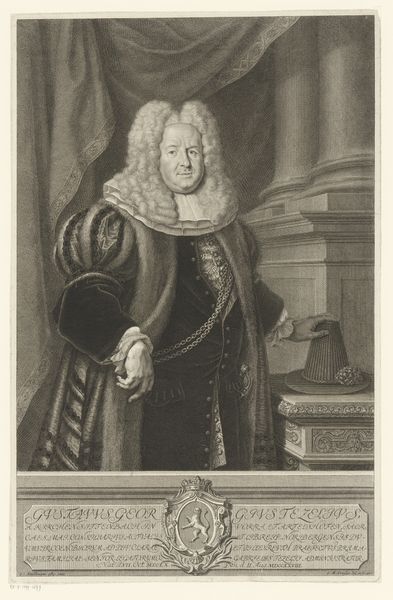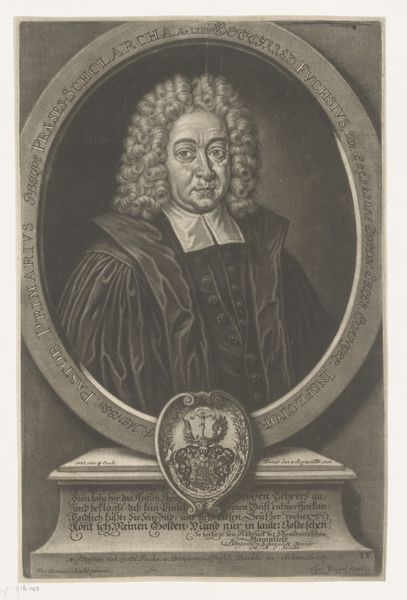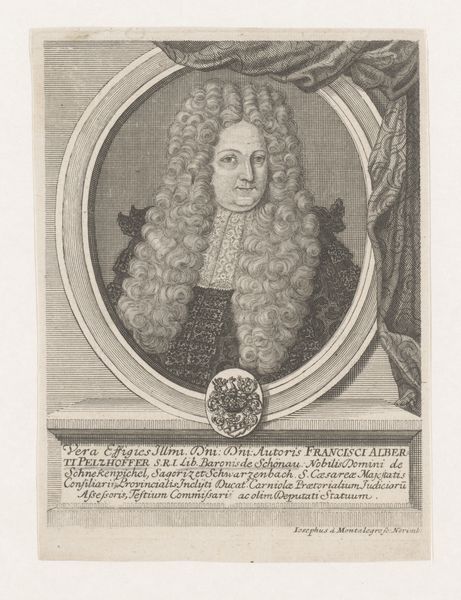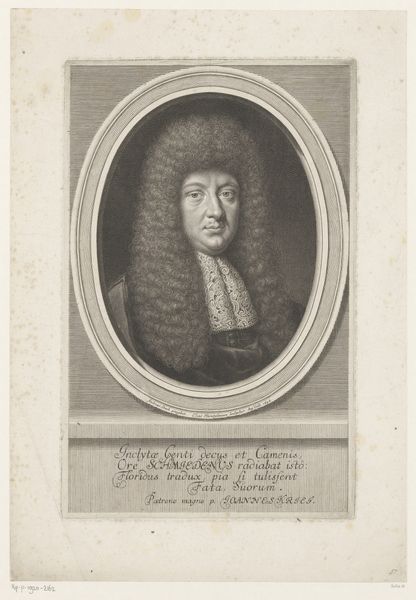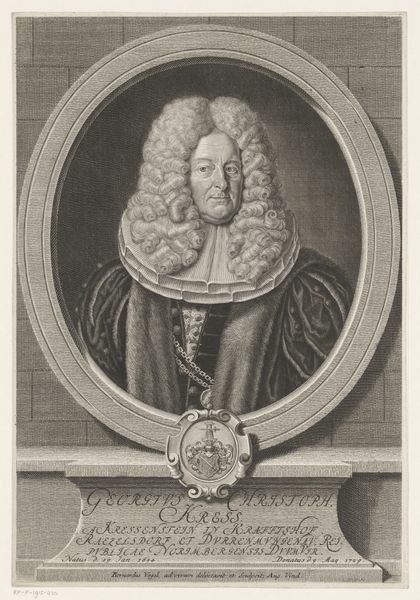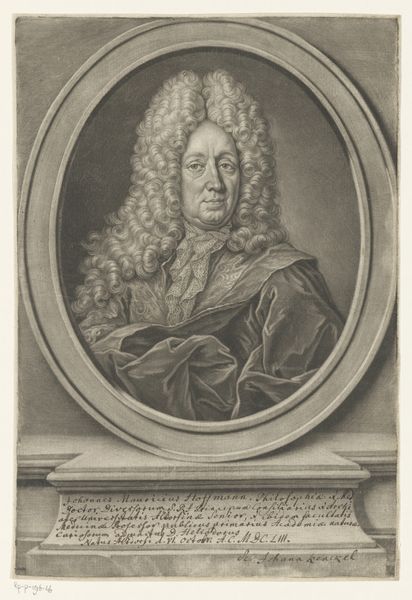
engraving
#
portrait
#
baroque
#
old engraving style
#
history-painting
#
engraving
Dimensions: height 317 mm, width 216 mm
Copyright: Rijks Museum: Open Domain
Editor: Here we have Bernhard Vogel's engraving, "Portret van Emanuel Harrer," created sometime between 1715 and 1737. The sheer size of that wig is quite something! It dominates the whole portrait. What social and historical forces do you see at play in a portrait like this? Curator: Precisely! That wig is far from incidental; it’s a loaded signifier. Think about what it *represents*: power, wealth, status within a rigidly hierarchical society. This portrait isn't just a likeness; it's a performance of identity within a very specific socio-political context. How does understanding Baroque ideals about gender and masculinity change your perspective on Emanuel Harrer? Editor: I see your point. So the wig becomes part of this almost theatrical display of social standing. But doesn’t the portrait also say something about the artist, Vogel, and his position in that same society? Curator: Absolutely. Vogel's skill in rendering textures, the meticulous detail in the clothing, all point to his own position within that patronage system. Who commissioned the portrait matters just as much as who is depicted. Who benefits from creating and circulating these images of power? What narratives are reinforced? Editor: It's like everyone involved is playing a role in maintaining the social order. Even the choice of engraving as a medium - more reproducible than a painting. It amplifies that statement. Curator: Exactly! So, looking beyond the individual, how does this image contribute to the broader discourse on power, representation, and social structures in the Baroque period? Editor: It’s fascinating to think of a portrait as not just a picture of a person but as evidence of the whole political landscape at the time. Thanks! Curator: And understanding the image through this lens also urges us to question the power dynamics in our own contemporary visual culture.
Comments
No comments
Be the first to comment and join the conversation on the ultimate creative platform.
